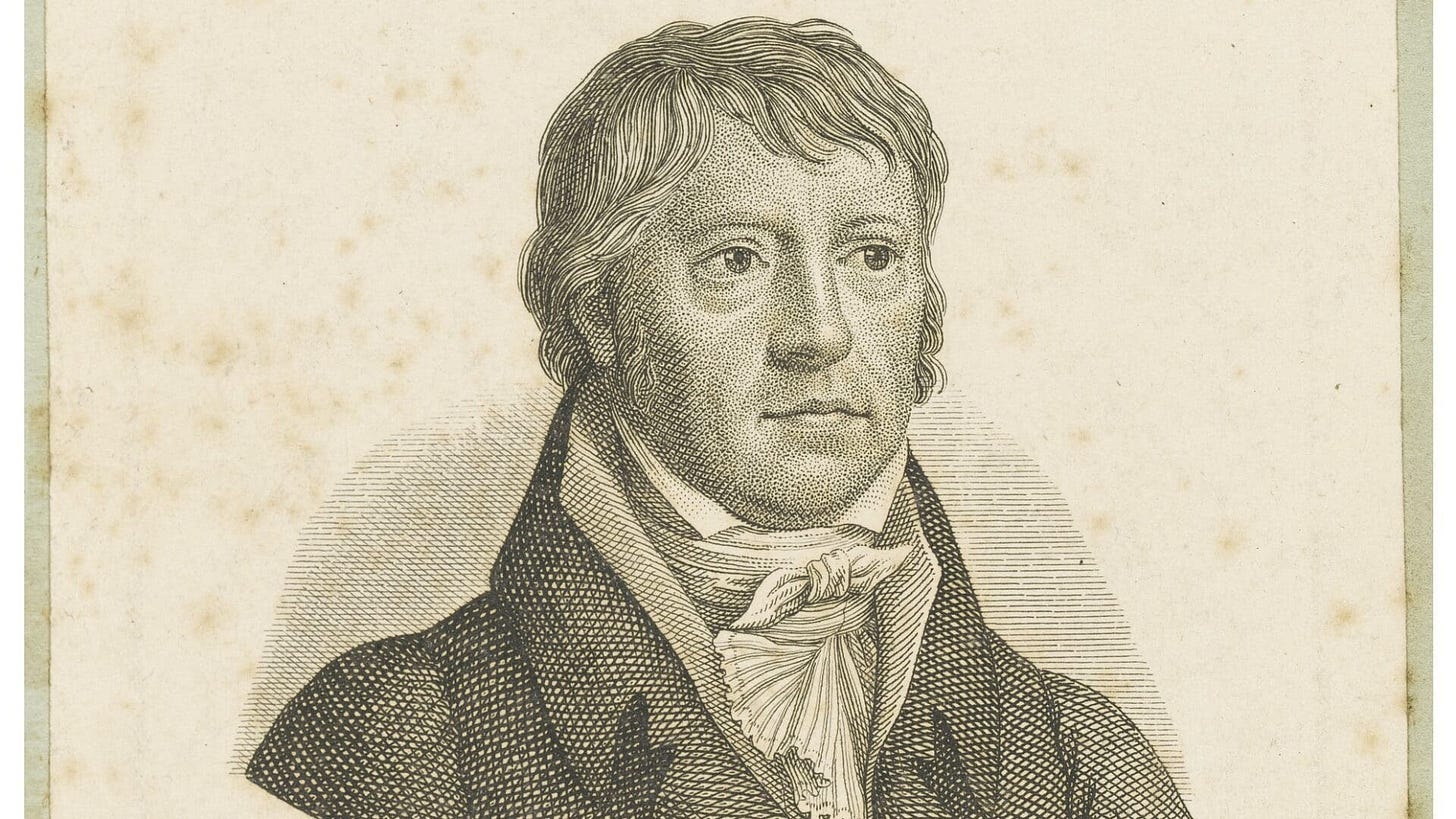The Dialectics of Self and Society: Exploring Hegel's Philosophy
The intricate interplay between individual self-consciousness and the collective ethical structures that shape societal identity is a cornerstone of German philosopher Georg Wilhelm Friedrich Hegel's work. Born in 1770, Hegel developed his ideas against the backdrop of significant socio-political upheaval in Europe, particularly influenced by the Enlightenment and the French Revolution.
His philosophy emphasizes that the evolution of human consciousness and cultural identity occurs through a dialectical process, where individuals recognize themselves in relation to others, leading to the formation of a shared societal consciousness that balances individual agency with collective norms.
Central to Hegel's philosophy is the notion that self-consciousness emerges through intersubjective recognition, suggesting that individuals cannot fully understand their identity without acknowledging the social dynamics that influence them. This concept extends to various spheres of human experience, including familial love and civic engagement, where ethical relations foster a sense of belonging and individuality. Hegel's exploration of civil society and the state further illustrates how individuals navigate their identities within broader social structures, positing that true freedom is realized when personal aspirations align with the collective good.
Hegel's dialectical method posits that history unfolds through a process of contradictions and resolutions, leading to the development of higher forms of consciousness and societal organization. This historical perspective underscores that cultural evolution is cyclical, where each epoch emerges from the decline of its predecessor, reflecting an ongoing dynamic of death and rebirth in human societies. His ideas have profoundly impacted various fields, including political theory and social sciences, shaping contemporary discussions around identity, social justice, and collective agency.
Despite Hegel's significant contributions, his views have also sparked controversy, particularly regarding his understanding of the state and freedom, which have been interpreted and critiqued by subsequent thinkers, including Marx and existentialists. These debates highlight the complexity of Hegel's legacy, underscoring the continuing relevance of his dialectical approach in analyzing the relationships between self, society, and historical progress.
Historical Context
Life and Influence
Georg Wilhelm Friedrich Hegel, born in Stuttgart in 1770, was significantly shaped by the intellectual environment of his time. He studied philosophy and theology at the University of Tübingen between 1788 and 1793, where he developed enduring friendships with future luminaries such as Friedrich Hölderlin and Friedrich von Schelling. These relationships were pivotal in the evolution of Hegel's ideas, intertwining their philosophical explorations and setting the stage for his later works, which became key figures in the Romantic movement and German philosophical thought in the early nineteenth century.
Hegel’s Philosophical Development
Hegel's philosophy emerged as a response to the tumultuous socio-political changes of his era, particularly the impact of the French Revolution and the Romantic movement, which challenged established norms and orthodoxy. These movements inspired Hegel to explore themes of freedom, self-consciousness, and the development of human societies. He emphasized the role of history as a dialectical process where human consciousness evolves through the interplay of ideas and social actions, ultimately leading to greater realization of freedom and rationality within communities.
The Dialectical Method
Central to Hegel's thought is the dialectical method, which posits that history progresses through contradictions and their resolutions, resulting in the development of higher forms of consciousness and social organization. Hegel's historical framework suggests that each historical period embodies a specific "principle" that guides the community's actions and self-understanding. This principle evolves as societies confront and overcome contradictions inherent in their existence, culminating in the modern nation-state, which Hegel viewed as the ultimate realization of self-consciousness and moral liberty.
Historical Narration and Original History
In Hegel's view, history combines both objective events and subjective interpretations, underscoring the significance of personal and collective memories in shaping historical consciousness. He distinguishes between "original history," characterized by first-hand accounts and personal experiences, and the narratives constructed by historians that aim for precision and accuracy. This interplay between individual experience and collective memory forms the basis of Hegel's understanding of historical progress, as communities construct their identities and futures through the narratives they create and share.
Thus, Hegel's historical context is not merely a backdrop but a dynamic interplay of ideas, experiences, and social transformations that inform his philosophical inquiries into the nature of identity, culture, and consciousness.
Key Concepts
History and Its Dual Nature
In Hegel's philosophy, history is understood as a dual concept encompassing both the events that occur (res gestas) and the narration of those events (historiam rerum gestarum). This intertwining of the objective and subjective aspects of history highlights the significance of both the actions and the interpretation of those actions. Hegel posits that historical memory is often sparked by distinctive events that disrupt the uniformity of everyday life, prompting a collective recollection that shapes cultural identity.
The Idea of Freedom
A central theme in Hegel's work is the notion of freedom, which he identifies as the ultimate aim of human existence. He argues that the realization of freedom is inherently linked to the subjective aspects of knowledge and volition, which are characterized by their dynamic nature. The State, in Hegel's view, serves as the manifestation of moral unity where individual freedoms are harmonized with the collective good, representing an objective realization of the abstract ideals of freedom and reason.
The Role of Dialectics
Dialectics, a method of argumentation and reasoning, plays a crucial role in Hegelian philosophy. It is a developmental process that involves the resolution of contradictions, leading to the synthesis of opposing ideas. Hegel reformulates the concept of




